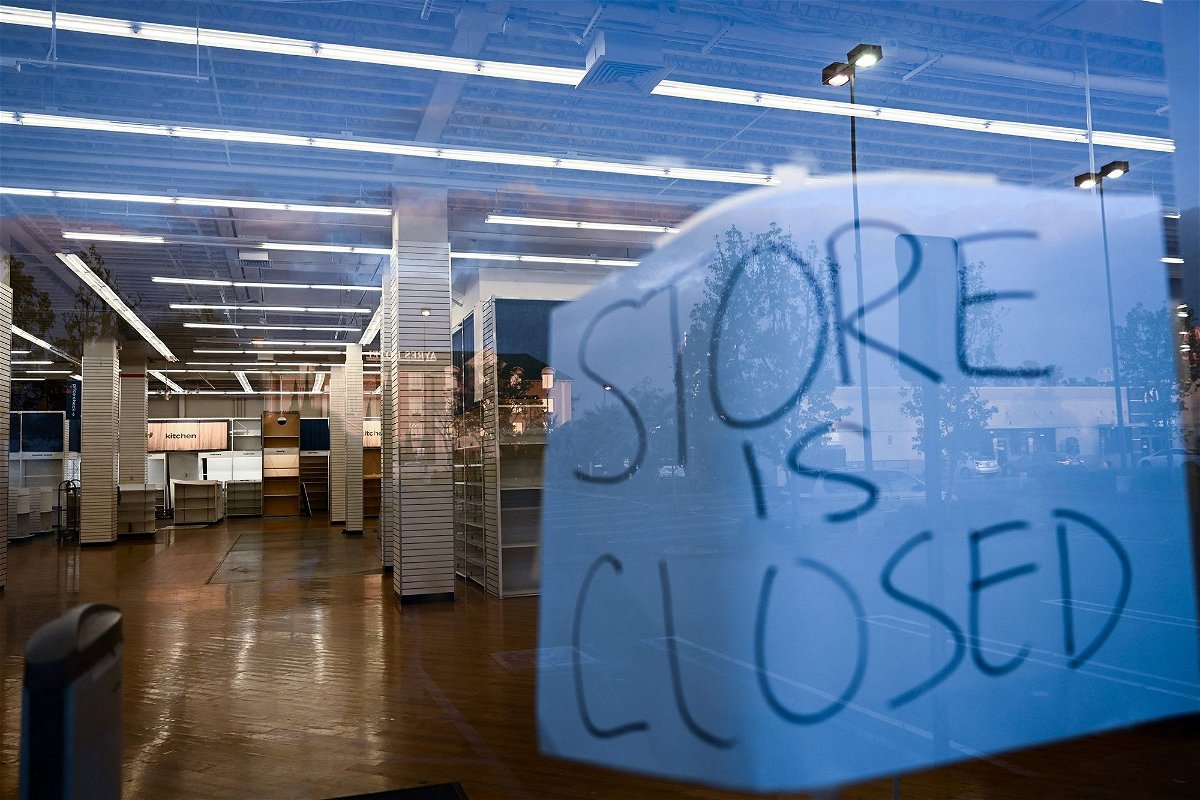Corporate bankruptcies are on the rise — and the pain won’t end for a while

Signage is displayed outside a permanently closed Bed Bath & Beyond retail store in Hawthorne
By Samantha Delouya, CNN
New York (CNN) — From Vice Media to Bed Bath & Beyond, bankruptcies are picking up again. Last week, corporate America had its worst 48-hour stretch of bankruptcies since at least 2008, according to Bloomberg. That’s never a good comparison.
So far, more than 230 companies have filed for bankruptcy in 2023, according to the latest data from S&P Global, which tallied the figures through April.
James Gellert, CEO of Rapid Ratings International, a company that evaluates the financial health of public and private companies, said many of these troubled companies have similar traits.
“The big themes are that they have degraded in operational quality and have debt that has been unsustainable,” he said.
“That is the formula for bankruptcy in this market.”
Retail companies are some of the hardest hit in the current economic environment because they are susceptible to consumer buying changes, Gellert said. Party City, Tuesday Morning and David’s Bridal are just some of the retailers to have filed for bankruptcy this year.
Companies with weaker balance sheets may continue to feel the pain all the way into next year. The corporate default rate for companies with lower credit quality will peak in early 2024, said Moody’s Investors Service, before falling as economic growth re-accelerates.
“Consumers will find that some brands are either unable to maintain their businesses or are having to change their business models,” Gellert said.
He estimates that consumer-facing companies with strong customer loyalty will fare better than others.
The Fed’s impact
The Federal Reserve’s rate-hiking campaign has played a role in the bankruptcy uptick.
As the Fed hikes rates, companies with less stable finances face the adverse effects of a “credit crunch,” an economic situation in which financial institutions tighten up requirements for obtaining a loan, meaning fewer loans are available. These companies struggle to get loans; if they do, they must pay higher interest rates for that borrowing.
Despite the fact that Fed Chair Jerome Powell has left the door open to potentially pausing after 10 consecutive hikes, the pain is not over for debt-laden companies. Rising rates will have a “lagged impact” on corporate balance sheets, Bespoke Investment Group co-founder Paul Hickey said.
“If you look back to the financial crisis, the market bottomed in March of 2009, and you were still seeing bankruptcies throughout that year, even as the market was doing better,” he said.
“There’s still going to be trouble going forward,” he said.
The-CNN-Wire
™ & © 2023 Cable News Network, Inc., a Warner Bros. Discovery Company. All rights reserved.